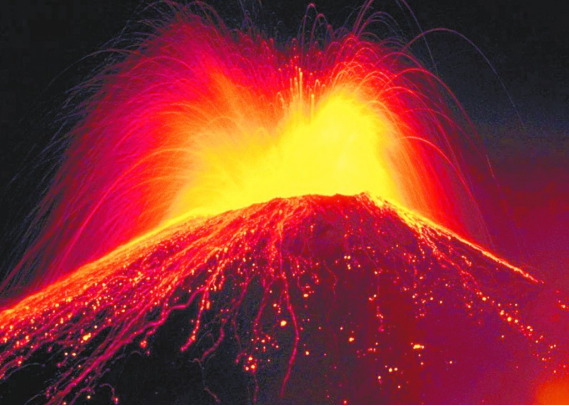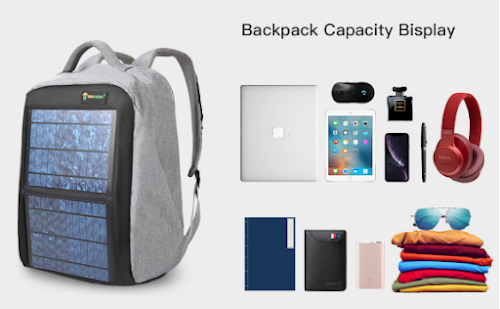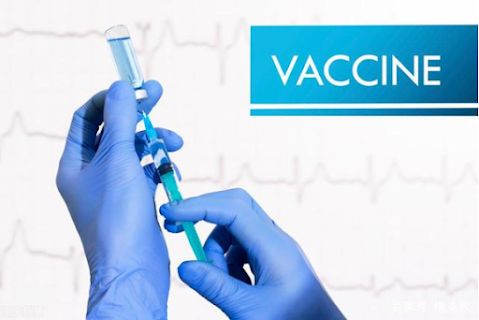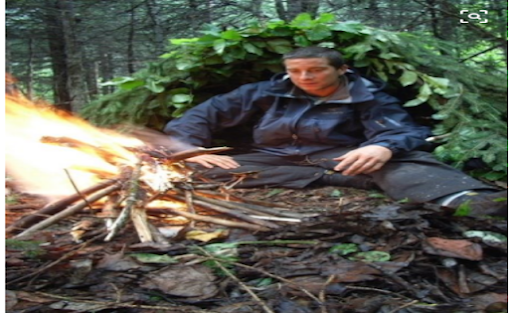Seven Tips to Survive a Disaster.

The previous volcanic eruption in Tonga allowed viewers to experience the power of nature due to different perspectives. The volcanic eruption brought a devastating blow to the local area.
At the same time, we have to think about what we can do to prepare if we face these natural disasters, and how we can help in the aftermath.
In today's globalized environment, the flow of information is very smooth, especially news related to natural disasters. So we should first pay attention to the relevant evacuation notices. The worst may be a sudden accident that prevents you from leaving the area in time for a natural disaster.
In today's globalized environment, the flow of information is very smooth, especially news related to natural disasters. So we should first pay attention to the relevant evacuation notices. The worst may be a sudden accident that prevents you from leaving the area in time for a natural disaster.
Faced with these situations, how can we ensure safety? How can I be better prepared? What choices do we need to make in times of necessity to survive?
After consulting several professionals, including outdoor life survival instructors, extreme weather photographers, meteorologists, and others, we found some of the following. Based on their advice to help you survive natural disasters.
1. What preparations need to be done before disaster strikes?
Experts suggest that it's easy to focus on gear and supplies at the beginning of preparation, but in fact people should know more about their area, and it is best to learn some survival skills in a planned way. Because in a crisis, you don't have time to read survival books or watch survival videos. Get some first aid training on a regular basis, learn how to cook without facilities, and learn about fetching and disinfecting water. Learn and learn as much as you can, because you never know what problems you will face in a natural disaster.
Some experts have formulated several principles for themselves. First, understand the crises that may arise in their area, second, know what to do, and third, do not delay action when necessary.
2.What necessary items should we prepare at home?
Experts suggest that the government's Disaster Preparedness Supplies Guide is a guidance document for preparing supplies at home. The basics generally include drinking water, no-cook food, non-flame light sources (torches instead of candles), first aid supplies and portable solar panels. Experts suggest that the portable solar panel is an indispensable item in various emergency situations. Once the power is cut off in the wild or in various disaster situations, it will face the loss of contact and the inability to obtain disaster emergency information sent by various governments. In this case, it is possible to miss the best time to call for help.
The Portable Solar Panel is small and light enough to take anywhere. As long as there is sun, the solar energy can be converted into electricity to charge various devices. There is no doubt that it will play a huge role in emergencies!
If you haven't had enough time to prepare for a disaster, experts suggest that water is the most essential resource. Use bottled water as much as possible to maintain the necessary water resources, and if you can't do that, fill all the places in your home that can store water, such as basins, buckets, or even bathtubs. Because according to expert experience, after a disaster, the tap water we usually use may be gone very quickly.
3. Safety Issues During Disasters
During a natural disaster, the most important thing a person can do is to stay calm.
Almost all experts say that in the face of natural disasters, it is easy for people to fall into a state of fear. Fear is an instinct that keeps us away from harm, but when fear is out of control, many people may make dangerous choices. .
So in times of crisis, staying calm and preventing panic should be the first premise for everyone to make the right emergency response.
What are the potentially dangerous situations during a natural disaster?
Hygiene issue. People do a lot of hygiene work without realizing it in their usual life. So during natural disasters, people sometimes neglect hygiene as conditions drop dramatically.
But hygiene is one of the basic conditions for human existence. Poor sanitation can lead to the rapid spread of dangerous bacteria in local or group shelter environments.
4. How to find drinking water and food?
Generally speaking, after natural disasters, outdoor water may be polluted to varying degrees. Possible contamination includes sewage, dead animal contamination, and toxic chemical contamination, so if not necessary, look for cleaner water sources as much as possible. Rainwater is an available water source. If there is no rainfall, you can look at the electric water heater at home, which usually has dozens of liters of clean water.
If none of these are available, outdoor water must be used, boil the water for 10 minutes, and use the upper part of the water.
How to find food? Regardless of the type of disaster, finding canned food after a disaster is the best option, experts suggest. Maybe the canned food label has come off, but the canned food is still edible.
5.How to prepare for medical problems during natural disasters?
Experts recommend using everything in a basic first aid kit if you have a medical problem that must be dealt with, including wounds. The best way is to irrigate the wound with saline and cover them with a bandage. Preventing wound infection is the most important goal.
6.How do you stay warm when you're wet or exposed outside?
A handy survival trick is to stuff your clothes with insulation. Insulation materials are paper, bubble wrap, or even leaves. These materials surround your body with an insulating barrier, preserving your body heat. Another effective way to stay warm in cold or wet conditions. When cold, use an available heat source, such as a thermos, and place it under or between layers of clothing. As the heat seeps into your body, you'll feel the cold fade away. It's also a safe and gentle technique for rejuvenating hypothermia victims.
7.If you know you need to leave the house, where can you go?
Experts suggest that the airport is a very good place. Even if they don't operate flights after a disaster. People will see you there and give you supplies. You just have to find a place with some kind of civilization where you can get water and shelter. People gravitate towards shelters, airports, hospitals. Is it better to wait for rescue in place or to seek rescue yourself? If you think you cannot survive where you are, if you think there is no hope of water or help, then you better try to find rescue. Because in most cases, people will help you. You just need to know the situation and your physical condition to determine when it is safe to move. There is no easy answer in these cases because they are all different.











Leave a comment